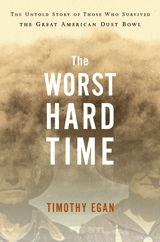It's the end of the jazz as we know it.
The fine folks of Flaskaland are always good for some unsung music links; this one relates tangentially to our ongoing attempt to sell a jazz book proposal. It's a book review from the San Francisco Chronicle, of the new Gary Giddins collection. Giddins is probably my favorite writer on jazz. Until recently the jazz critic at The Village Voice, Giddins' previous compilation is one of the great tomes on the subject. It's tome-tastic.
The reviewer notes Giddins' bleak assessment of the future of jazz:
Also:
Of course, if one spends years immersed in writing a two-volume bio of Bing Crosby, Les Paul might suddenly comes across as energetic.
Jazz's obit is written and mimeographed every few years. It's surprising that Giddins, who continued to champion younger players from his perch at the Voice up until the end, would mourn the lack of youthful innovation, but I think this is almost a required corollary to covering a beat for decades. And moreover misses the boat. Jazz is marginal now, and has been for a while, but that doesn't mean there isn't an audience for it, and it certainly doesn't mean that it lacks younger players opening new channels. The roster of new releases here is one source of optimism among many.
Also, while "access to the machinery of capitalism" would, one supposes, be nifty to have (although the password keeps changing), phenomenal and relevant musical statements have been made without it through the ages. The web already offers instant access to the machine, if only with smaller gears. And as for "leisure pursuits that supply insignificant profits," well, it's funny what happens when you charge $0.99 for a song.
The reviewer notes Giddins' bleak assessment of the future of jazz:
Jazz as a business is in deep trouble, despite steady sales of archival classics and various commercial uses of those same beloved records, often rendered anonymous in TV ads. How could it be otherwise? Jazz musicians have virtually no access to the machinery of capitalism and multinationals have no patience with leisure pursuits that supply insignificant profits.
Also:
Through most of jazz history elder statesmen were valued for continuing to play well, while the main focus was on younger players whose energy opened new channels. But who today plays with more energy, originality, and purpose than Cecil Taylor, Max Roach, Ornette Coleman, John Lewis, Roy Haynes, Lee Konitz, Sam Rivers, and Sonny Rollins?
Of course, if one spends years immersed in writing a two-volume bio of Bing Crosby, Les Paul might suddenly comes across as energetic.
Jazz's obit is written and mimeographed every few years. It's surprising that Giddins, who continued to champion younger players from his perch at the Voice up until the end, would mourn the lack of youthful innovation, but I think this is almost a required corollary to covering a beat for decades. And moreover misses the boat. Jazz is marginal now, and has been for a while, but that doesn't mean there isn't an audience for it, and it certainly doesn't mean that it lacks younger players opening new channels. The roster of new releases here is one source of optimism among many.
Also, while "access to the machinery of capitalism" would, one supposes, be nifty to have (although the password keeps changing), phenomenal and relevant musical statements have been made without it through the ages. The web already offers instant access to the machine, if only with smaller gears. And as for "leisure pursuits that supply insignificant profits," well, it's funny what happens when you charge $0.99 for a song.





0 Comments:
Post a Comment
<< Home